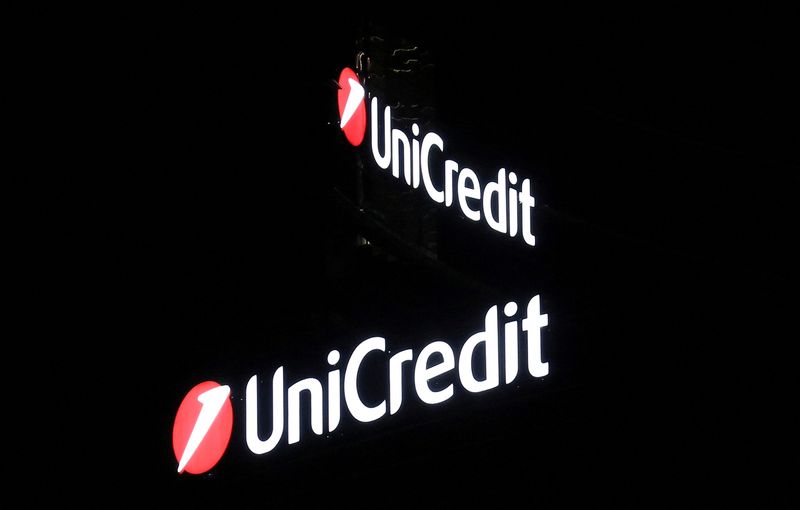MOSCOW (Reuters) - A Russian court has eased restrictions imposed on UniCredit in a lawsuit over an aborted gas project, on Friday permitting the Italian lender to offer Russian sovereign bond holdings as collateral instead of other assets and property.
The St Petersburg arbitration court ruled in mid May that 462.7 million euros ($503 million) in securities, real estate and accounts belonging to UniCredit, as well as 100% of shares in UniCredit Leasing and UniCredit Garant, be seized.
UniCredit Leasing and UniCredit Garant are subsidiaries of AO UniCredit Bank, the Italian group's Russian arm. UniCredit said earlier in May that the seizure affected only a fraction of the Russian unit's assets, not the entire subsidiary.
Following the asset seizure, UniCredit's Russian unit agreed with the plaintiff, RusChemAlliance, for UniCredit to pledge Russian OFZ treasury bond holdings with a market value of around 50 billion roubles ($556 million) instead, the court said.
UniCredit did not immediately respond to a request for comment.
"This is considered proportional to the claim ... taking into account that the price of bonds undergoes periodic changes depending on the influence of various external market factors," the court said.
The OFZ pledge agreement softens the terms of existing restrictions, while maintaining the possibility of enforcing the court's decision in future, the court said.
The Italian bank was one of the guarantor lenders under a contract for the construction of a gas processing plant in Russia with Germany's Linde (NYSE:LIN), which was terminated due to Western sanctions.
When the project was halted, St Petersburg-based RusChemAlliance, a joint venture that is 50% owned by Russian gas giant Gazprom (MCX:GAZP), had made a 2 billion euro advance payment on the 10 billion euro contract, according to Britain's Supreme Court website.
UniCredit had issued part of the guarantee package in favour of RusChem on behalf of Linde.

($1 = 0.9191 euros)
($1 = 89.9130 roubles)